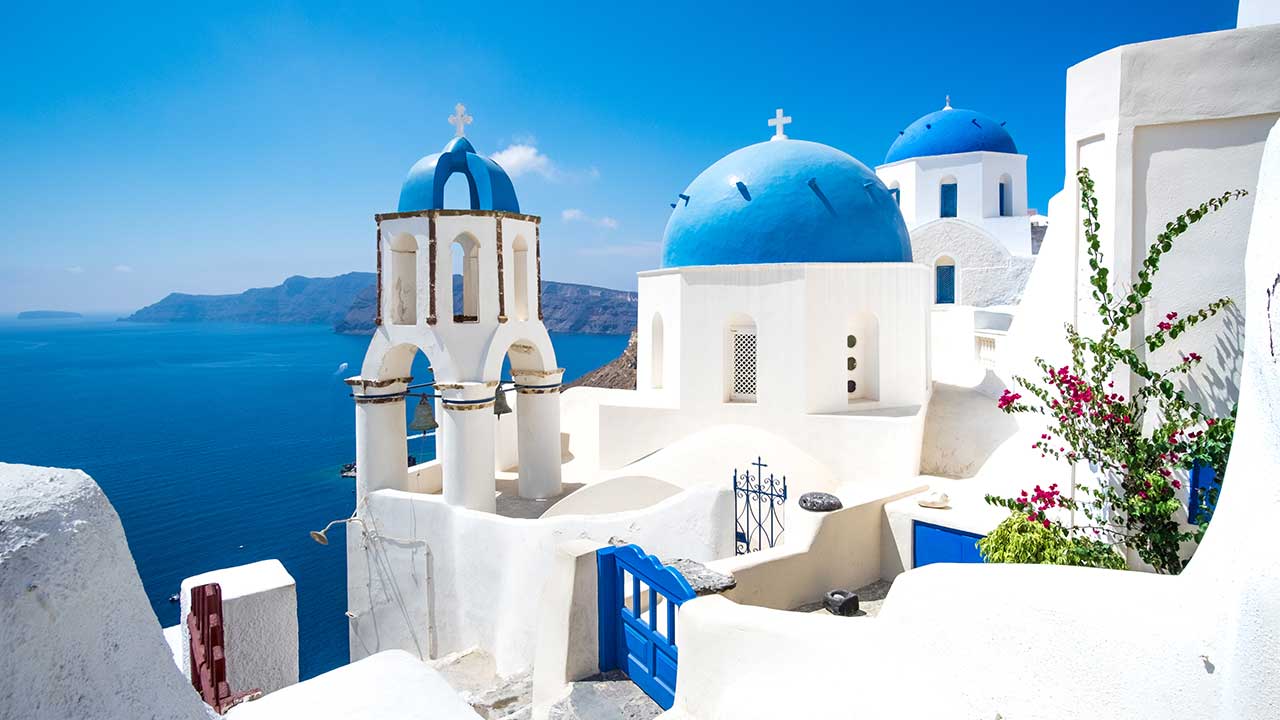Santorini, Greece
Santorini, Greece

Santorini, officially named Thira, is the southernmost Greek island that is within the Cyclades archipelago, in the southern Aegean Sea. Part of the regional unit Thira, the municipality of Santorini is comprised of the island Santorini, Therasia, and other uninhabited islands of Christiana, Palaia Kameni, Aspronisi, and Nea Kameni. The geological history of Santorini is quite complex due to the area’s volcanism and is currently a water-filled caldera: a rectangular lagoon that is surrounded by three steep cliffs. The name Santorini is a contraction of the name Santa Irini, which is based on an ancient cathedral found in the island’s village of Perissa. This name was given by the Latin Empire in the 13th Century. During the Ottoman Empire, Santorini was called “Santurin” or “Santoron”, and in early times, it was named Kalliste, Strongyle, and Thera.
Santorini is the site of the Minoan Eruption (also known as the Thera Eruption), one of the largest eruptions ever in recorded history. The origins of Plato’s story of Atlantis is believed to have a connection to this eruption that destroyed the early settlements on what was formerly a single island. The descriptions found of Plato’s Atlantis strongly resembles Thera, and with seismological, archaeological, and volcanological evidence, these claims are further supported. There is also speculation that the eruption is related to the Exodus of the Israelites, as well as causing the plagues described in the Bible in ancient Egypt.
The economy is sustained by two principal industries: tourism and agriculture, and has recently been voted as one of the world’s most beautiful islands in various outlets such as the Traveler’s Choice Awards in 2015. The wine industry in Santorini is becoming more relevant as well, made up of Assyrtiko, Athiri and Aidani grape varieties, which is best exemplified in Vinsanto (“holy wine”) which contains all three Aegean varietals. Although Santorini is highly arid, it’s unique ecology and climate allows it to grow unique and prized produce, such as cherry tomatoes, Lathyrus clymenum (a legume), and capers. Thus, tourists indulge in local specialties such as Brantada, Fava, and the traditional dish Santorinio Sfougato.
Yachting Land Adventures
Voyages
Testimonials
... we were again thrilled and enjoyed the same high as was the case in both previous sails. Peter & Liz C.Australia
We really had a great time which far exceeded our expectations. Mr & Mrs AmbroseTexas
Exceeded my expectations. Outstanding food and exceptional service from a top notch crew that truly cares about their guests! Mr & Mrs WrightPA
Couples massage was one of the best I've ever had! Mr Hucker & Mrs BrunoFlorida
You are organizing great trips and you have excellent service. I think I will use your services more in future. Albert R.Illinois
Another great trip with SeaDream. We so enjoyed the service & attention to detail. Sara J.California